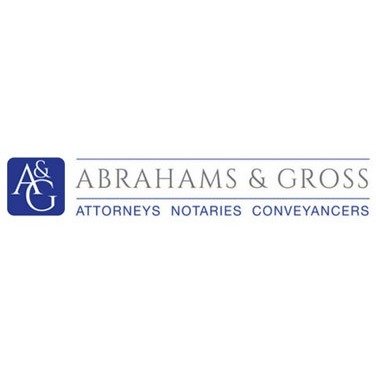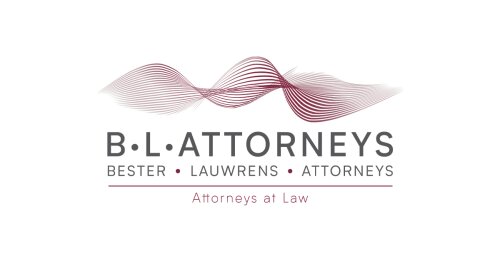Best Conveyancing Lawyers in Cape Town
Share your needs with us, get contacted by law firms.
Free. Takes 2 min.
Free Guide to Hiring a Real Estate Lawyer
List of the best lawyers in Cape Town, South Africa
About Conveyancing Law in Cape Town, South Africa
Conveyancing is the legal process of transferring property ownership from one person or entity to another. In Cape Town, South Africa, conveyancing is a specialized legal field managed by attorneys known as conveyancers. These professionals are specifically qualified and admitted by the High Court to handle property transfers, the registration of mortgages, and other real estate matters. Cape Town's unique blend of urban growth, historic properties, and coastal developments makes the local conveyancing landscape both vibrant and complex.
Why You May Need a Lawyer
Conveyancing is a detailed legal process involving significant financial and emotional investment. There are various scenarios in which you may require the assistance of a conveyancing lawyer in Cape Town:
- Selling or purchasing a residential or commercial property
- Registering a mortgage bond or cancelling an existing bond
- Transferring property due to inheritance, divorce settlements, or other legal reasons
- Dealing with sectional titles, property developments, or subdivisions
- Clarifying the zoning or use of land and addressing any restrictions
- Resolving disputes relating to property boundaries or ownership rights
A qualified conveyancer ensures that the transaction complies with all legal requirements, protects your interests, and expedites the registration process at the Deeds Office.
Local Laws Overview
Conveyancing in Cape Town is governed by national legislation, including the Deeds Registries Act, the Transfer Duty Act, and the Sectional Titles Act. Additionally, local municipal bylaws may affect property use, rates, planning, and development. Some of the key legal aspects include:
- Deeds Registration: Every change in property ownership must be registered at the Cape Town Deeds Office to be legally effective.
- Transfer Duty: Buyers may be liable for transfer duty, a tax payable to SARS, unless exempt due to the value or nature of the transaction.
- Municipal Rates Clearance: Sellers must obtain a rates clearance certificate, confirming that all municipal rates and service charges are paid up-to-date.
- FICA Compliance: All parties must provide proof of identity and address as part of anti-money laundering regulations.
- SPLUMA Certification: The Spatial Planning and Land Use Management Act certification may be required for certain property transfers and developments.
Local circumstances such as heritage restrictions, coastline management, and environmental compliance can also affect property transactions in Cape Town.
Frequently Asked Questions
What is a conveyancer, and why do I need one in Cape Town?
A conveyancer is a lawyer with specialized qualification and admission to handle property transfers and registrations. South African law requires a conveyancer to manage property transfers, ensuring legal compliance and protecting all parties involved.
How long does a typical conveyancing transaction take in Cape Town?
A straightforward property transfer usually takes between six and twelve weeks, depending on the readiness of documentation, the Deeds Office workload, and the promptness of all parties.
What are the main costs involved in conveyancing?
Key costs include conveyancer’s fees, transfer duty payable to SARS, Deeds Office registration fees, rates clearance certificate fees, and potential bond registration fees if applicable.
Who appoints the conveyancer in a property sale?
Traditionally, the seller appoints the conveyancer, but this can be negotiated during the sale. All parties are free to agree on the lawyer handling the transfer.
Do I need to be present in Cape Town for the property transfer to take place?
You do not always need to be physically present. However, some documents must be signed in person or in front of a Notary Public, especially if you are abroad.
What documents do I need for conveyancing?
You need a valid identity document, proof of residence (for FICA), the property’s title deed, and SARS tax information. Further documents may be required depending on the circumstances.
Can a property be transferred if the municipal rates or taxes are outstanding?
No, a rates clearance certificate must be obtained from the City of Cape Town, confirming all municipal rates and charges are fully paid before transfer.
What is the role of the Deeds Office in the conveyancing process?
The Deeds Office reviews and registers property-related transactions to ensure legality and proper record keeping. The property transfer is legally effective only once registered.
Are there any specific local regulations affecting property in coastal or heritage areas?
Yes, properties near the coastline or with heritage status may be subject to special environmental, development, or use restrictions imposed by local municipal and provincial authorities.
How do I check if the person selling the property is the rightful owner?
A conveyancer or the Deeds Office can conduct a deeds search to verify the registered owner and any encumbrances or restrictions on the property.
Additional Resources
If you require further information or assistance, the following resources and organizations may be helpful:
- Deeds Office Cape Town for property registration enquiries
- Law Society of South Africa for lists of registered conveyancers
- City of Cape Town’s rates and valuation department for clearance certificates
- South African Revenue Service (SARS) for transfer duty information
- Estate Agency Affairs Board for real estate regulatory concerns
You may also consult consumer protection offices and property ombudsman services in case of disputes or complaints.
Next Steps
If you are planning to buy, sell, or transfer property in Cape Town, it is recommended that you consult a qualified conveyancer as early as possible. Make sure to collect all relevant documentation, clarify any issues with your estate agent or legal advisor, and budget for applicable costs. Prompt engagement with a conveyancer will help avoid delays, reduce legal risks, and protect your interests throughout the process.
Begin by compiling your personal documents, property records, and making a list of your questions or concerns. Approach a local, reputable conveyancing attorney for an initial consultation and ask about their experience with transactions in your specific area or property type. Stay informed, proactive, and maintain clear communication with all parties involved for a smooth conveyancing process.
Lawzana helps you find the best lawyers and law firms in Cape Town through a curated and pre-screened list of qualified legal professionals. Our platform offers rankings and detailed profiles of attorneys and law firms, allowing you to compare based on practice areas, including Conveyancing, experience, and client feedback.
Each profile includes a description of the firm's areas of practice, client reviews, team members and partners, year of establishment, spoken languages, office locations, contact information, social media presence, and any published articles or resources. Most firms on our platform speak English and are experienced in both local and international legal matters.
Get a quote from top-rated law firms in Cape Town, South Africa — quickly, securely, and without unnecessary hassle.
Disclaimer:
The information provided on this page is for general informational purposes only and does not constitute legal advice. While we strive to ensure the accuracy and relevance of the content, legal information may change over time, and interpretations of the law can vary. You should always consult with a qualified legal professional for advice specific to your situation.
We disclaim all liability for actions taken or not taken based on the content of this page. If you believe any information is incorrect or outdated, please contact us, and we will review and update it where appropriate.















